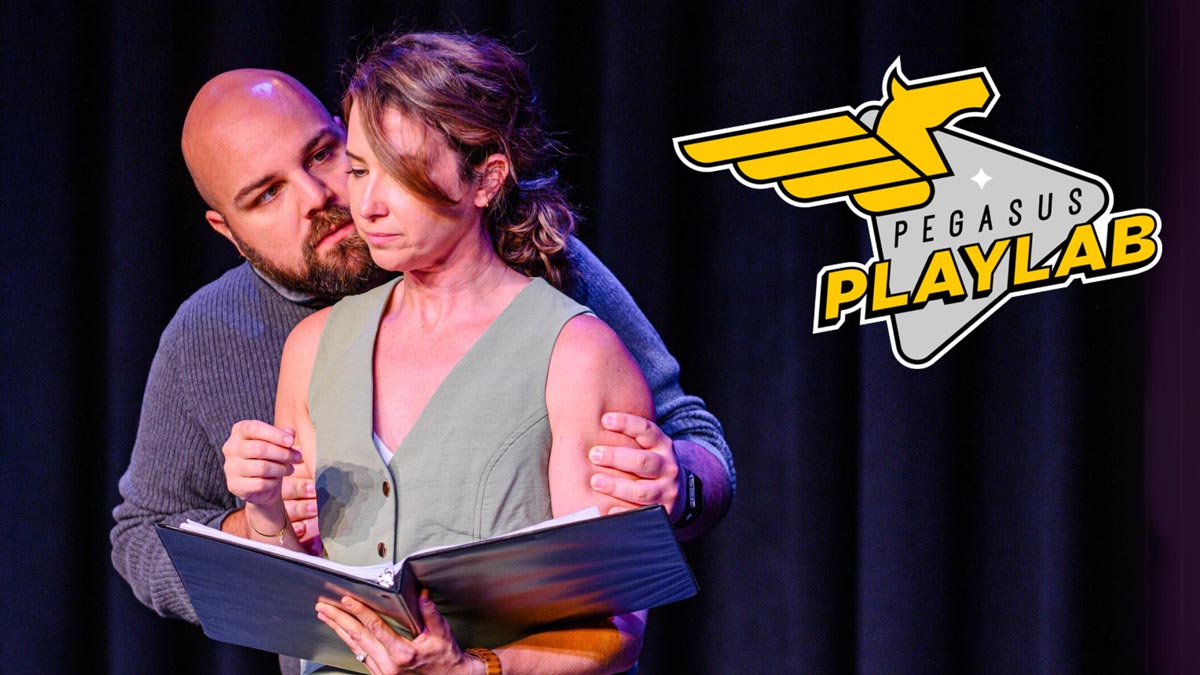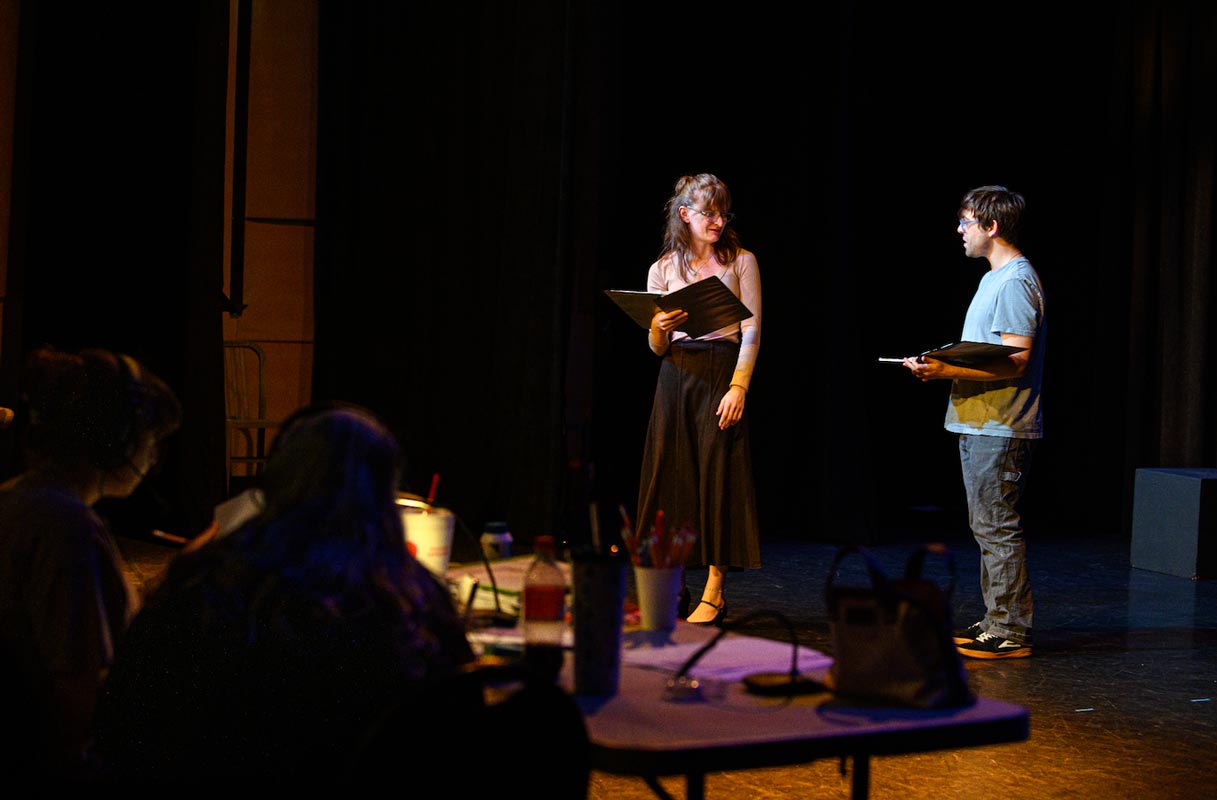 New play development is the process of nurturing and refining a new theatrical work from its early stages to a full production. This involves workshops, readings, and feedback sessions with opportunities for the playwright to refine the script. This also allows actors and directors to help further develop the material. Pegasus PlayLab celebrates this innovation and serves as a residency and incubator for emerging playwrights to develop their new play with UCF students and faculty. By providing the resources to nurture these works, playwrights can bring their ideas to life.
New play development is the process of nurturing and refining a new theatrical work from its early stages to a full production. This involves workshops, readings, and feedback sessions with opportunities for the playwright to refine the script. This also allows actors and directors to help further develop the material. Pegasus PlayLab celebrates this innovation and serves as a residency and incubator for emerging playwrights to develop their new play with UCF students and faculty. By providing the resources to nurture these works, playwrights can bring their ideas to life.
As a Broadway performer who debuted in La Cage Aux Folles and actor with credits on major shows like Unbreakable Kimmy Schmidt and Royal Pains, Ashley Kate Adams brings over 15 years of experience to one of this year’s workshopped events, Dance Night. Serving as the Development Producer, she oversees the creative logistics necessary for plays to materialize and feels it’s essential to nurture these works in their early stages of development.
“There is a shift in American theater where new play development is so important to create the home, to create the space, for these new works to be developed,” Adams says. “What is so exciting about this PlayLab is that UCF supports us by providing a phenomenally structured program spearheaded by the artistic director, Julia Listengarten, and has created this opportunity for us to safely explore these new works or new plays in a very efficient setting.”
Michael Jablonski, an assistant professor for Theatre UCF and Dance Night’s director, likens his approach to a new play like Dance Night to the age-old question of “do you like to read the book first, or do you like to see the movie?”
“I think when you read the book, that’s similar to new play development,” he explains. “You actually have to create the world- how it looks, how it feels, how it sounds, how it smells, everything. It’s all your imagination.”
As a director, Jablonski says that he must identify what audiences need from the production to connect with the play. From there, directors must work closely with their teams to embody this in the actors and designers who come into the creative process while fostering a sense of openness.
 The new art medium shows how such inclusivity allows playwrights to explore new themes and types of works. Kevin P. Hill, the playwright of Dance Night, takes timeless themes from Powell’s works and uses this opportunity to be different.
The new art medium shows how such inclusivity allows playwrights to explore new themes and types of works. Kevin P. Hill, the playwright of Dance Night, takes timeless themes from Powell’s works and uses this opportunity to be different.
Dance Night is set in the 1930s and takes inspiration from American novelist Dawn Powell. The play delves into the everlasting connection between a mother and her son as they try to survive in a world full of broken dreams. They are caught in a never-ending dance between their ambitions and the harsh reality of life in a small town, hoping for a way out.
“This medium has never been done before,” Hill says. “There’s no play where the action is dance. I wanted to take this medium and have the world see it.”
The creators of Dance Night and the Theatre UCF community working to build this new production from the ground up understand the importance of creating new works and how their cultural impact is crucial to the continued growth of theatre. Adams noted that every play within the catalog of theater was once a new play, even the classics. But while well-known stories hold their place in theater, the need for new writers and voices was less prominent than we see in our culture today, and these works have the power to challenge norms, provoke thoughts, and spark conversation, keeping theater fresh and engaging for audiences.
“I know that if it rings true to one person,” Hill says, “then we’ve done our job.”
To learn more about Pegasus PlayLab 2024 and how to see these ground-breaking productions come together in their early stages, visit: https://cah.ucf.edu/performingarts/pegasus-playlab/.